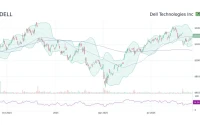The UK's Crown Prosecution Service has rendered its decision regarding Andrew Tate and a set of historical allegations. After reviewing evidence from Hertfordshire Constabulary, the CPS concluded that its "legal test for prosecution was not met." For Tate and his substantial online following, this is being framed as a definitive exoneration, a critical victory against a coordinated campaign of "Lawfare."
On social media, the narrative is one of triumph. Tate himself, never one for understatement, placed his situation alongside that of Donald Trump, positioning them as two of the "most mistreated men in history." His UK solicitor, Andrew Ford, stated the evidence was "inadequate to provide any realistic prospect of conviction," a sentiment that now has the official weight of the CPS behind it. The online chatter, a qualitative data set of its own, reflects this view. The sentiment pattern is overwhelmingly one of vindication.
But a dispassionate analysis requires looking at the complete data set, not just the top-line number that generates the most favorable headline. The allegations in question date back about a decade—to be more exact, to the period between 2013 and 2015. Four women accused the 38-year-old influencer of sexual violence and coercive control. This is not new information; the CPS first decided against prosecuting this specific case in 2019. The recent decision is essentially a re-affirmation of that original position.
The key variable here is the distinction between prosecutorial standards. A criminal case in the UK requires the CPS to believe there is a "realistic prospect of conviction," a high evidentiary bar. The decision not to prosecute is not a formal declaration of innocence; it is a statement about the statistical probability of securing a guilty verdict. This is a critical distinction that appears to be lost in the celebratory noise. The civil case brought by the same four women, which operates on a lower standard of proof (the balance of probabilities), is still very much active and is scheduled for the High Court in June 2026. The dataset on this front remains incomplete.
One Victory vs. a Portfolio of Legal Risk
The Conflated Dockets
And this is the part of the analysis that I find genuinely puzzling. The narrative being propagated by Tate and his supporters treats the Hertfordshire CPS decision as a referendum on his entire legal situation. This is a profound misreading of the available data. The Hertfordshire case is just one of three distinct and significant legal dockets involving Andrew and Tristan Tate. To ignore the other two is to engage in a deliberate form of analytical blindness.
Let’s examine the second UK-based case. In May of this year, the very same Crown Prosecution Service—the organization whose judgment is now being celebrated—authorized a raft of charges against the Tate brothers based on evidence from a different police force, Bedfordshire. In that separate and unrelated case, Andrew Tate faces 10 charges, including rape and human trafficking, while his brother Tristan faces 11. A European arrest warrant was issued, and their extradition from Romania to face these charges is pending only the completion of their legal proceedings there.

This presents a glaring discrepancy. One cannot logically champion the CPS’s judgment as impeccable in one instance while simultaneously ignoring its decision to authorize 21 charges in another. It suggests a selective approach to data acceptance, where convenient outcomes are amplified and inconvenient ones are dismissed as part of the "Lawfare" conspiracy.
Then there is the third docket: the ongoing case in Romania, which is the reason their extradition is on hold. The details there are public record, involving serious allegations of human trafficking, rape, and forming an organized crime group. That trial is proceeding.
The methodological flaw in the public's current analysis, driven by Tate's own powerful messaging, is one of scope. It focuses on a single, favorable data point—the non-prosecution of a decade-old case that had already been declined once before—while completely ignoring the larger, active, and arguably more severe legal threats documented in two other jurisdictions (one of which is overseen by the same UK authority). It’s akin to a company celebrating a minor increase in regional sales while ignoring a catastrophic collapse in its primary global markets. The positive data point is real, but its significance is wildly inflated when viewed in isolation.
The question of "who is Andrew Tate" is often debated in cultural terms, but the immediate, practical answer is a man facing a complex matrix of legal challenges. His current status in `andrew tate jail` in Romania, followed by house arrest, and the pending extradition to the UK for a separate set of serious charges are not abstract variables. They are concrete, documented events. To focus solely on the Hertfordshire decision is to analyze a single pixel on a screen and claim to understand the entire picture. The data simply does not support such a narrow conclusion.
###
The Fallacy of a Single Variable
###
The narrative of total vindication is a fiction constructed from a single, convenient data point. A full audit of Andrew Tate’s legal exposure reveals that the Hertfordshire decision is an outlier, not the trend. The market for public opinion is currently pricing in a victory based on incomplete information, ignoring the far more significant and negative indicators from the Bedfordshire and Romanian dockets. The celebratory headlines are a classic example of mistaking a single battle for the entire war. The numbers, when viewed in their totality, tell a much different, and much bleaker, story.
Reference article source:









